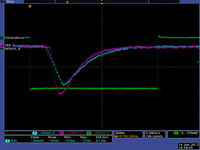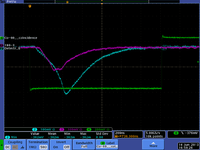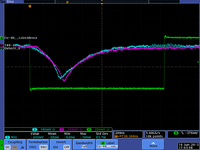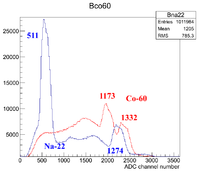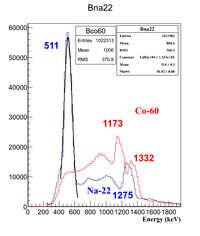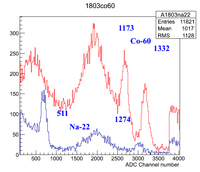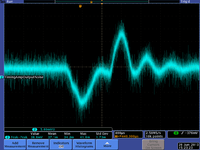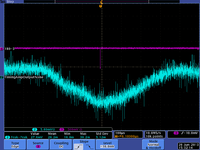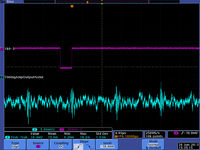Difference between revisions of "PAA CoincidenceCounting"
| Line 20: | Line 20: | ||
| − | + | =First Singles Spectrum= | |
| − | + | ==Detector B== | |
[[File:r5399-5400_overlay.png | 200 px]][[File:r5399-5400_Caloverlay.png | 200 px]] | [[File:r5399-5400_overlay.png | 200 px]][[File:r5399-5400_Caloverlay.png | 200 px]] | ||
| − | + | ==Detector 180-3== | |
| Line 48: | Line 48: | ||
[[File:Noise_B62613.png | 200 px]] | [[File:Noise_B62613.png | 200 px]] | ||
| − | |||
| − | [[TF_CPAA_Patents]] | + | [[TF_CPAA_Log]][[TF_CPAA_Patents]][[PAA_Research]] |
| − | |||
| − | [[PAA_Research]] | ||
Revision as of 21:43, 26 June 2013
ADC non-linearity
Canberra Model 9615 < 0.04% (integral) over 2usec
Canberra Model 9633 < 0.025% (integral) < 0.9% (differential)
CAEN V792 < 0.1% (integral)
Coinc Scope pictures
First pict with ADC gate
Two HpGe detectors were used to detect coincidence gammas from Co-60 on 6/14/2013.
Co-60 will beta decay to Ni-60 giving off two gammas in coincidence having energies of 1173 and 1332.5 keV. The scope pictures below record the pulses from the HpGe detector that are in coincidence. I would have expected the charge output by the HpGe detector to be similar for the two gammas, but there are some that have less than half the charge. The could be the beta particles from the decay reaching one of the detectors in coincidence with one of the gammas.
First Singles Spectrum
Detector B
Detector 180-3
50 keV Energy resolution from an HpGe detector??
I think the inverting amp is too noisy:
The Signal is about 400 mV and the above noise is 37 mV peak-to-peak and it is syncronized with my integrate gate
The voltage variations of the timing amp output in the region of the integrate gate are about +/- 10 mV
